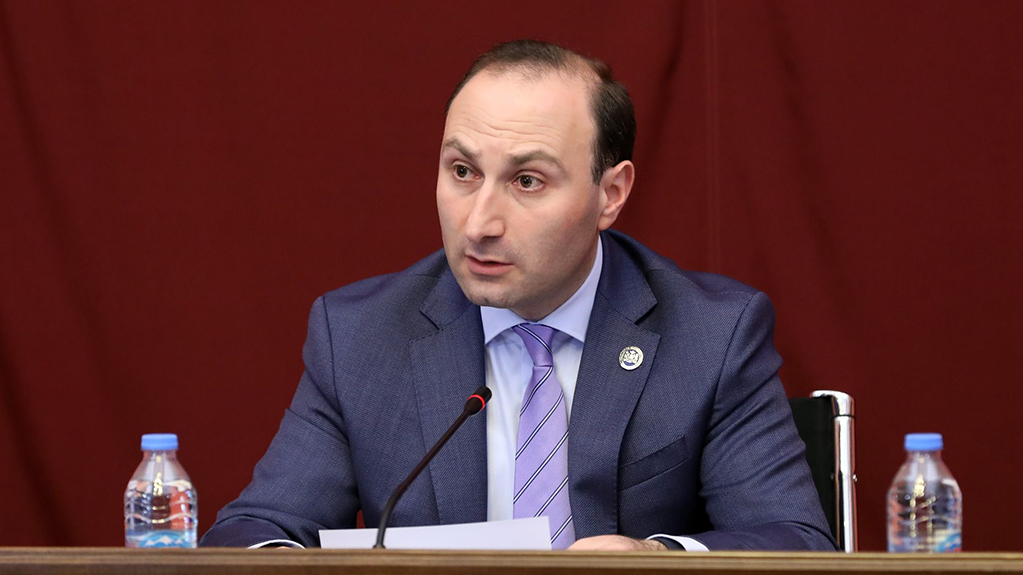The Parliament Legal Affairs Committee will consider the Russian Law of the ruling Georgian Dream in the second reading. The committee chairman, Anri Okhanashvili, has already expelled Giorgi Vashadze, Levan Bezhashvili, and Tamar Kordzaia from the hall and has issued a warning to other opposition MPs.
News
The members of the opposition wanted to raise the question of postponing the session, but the committee chairman did not give them the opportunity to make a statement as provided for by the procedure. Instead, he called on one of the authors of the law, Mamuka Mdinaradze, to start the review of the law article by article.
"You have a counteraction scheduled today, and therefore it was proposed that this committee be adjourned to avoid any provocation or incident, as the consideration of this bill..." said Giorgi Vashadze, the Strategy Agmashenebeli leader, when Anri Okhanashvili interrupted his speech and warned him, only asking a question regarding the article of the law.
"The purpose and scope of the law is addressed in the first article. Mr. Mamuka, why do you continue to falsely claim that the purpose and scope of this law are the same as in the UK, France, or the USA? In fact, it aligns precisely with the regulations in force in Russia, and we will explain why. In the case of Britain, the purpose, scope, and basis of the law stemmed from a national security research document, which revealed interference in internal affairs by unfriendly states such as Russia, China, and in some cases Iran. Therefore, the objective was national security, not the false transparency that this law provides. The same applies to France.
The only case where false transparency is the goal is in the Russian Federation. A similar law was passed by Hungary but was annulled by the European Court. This is because the law, which aims at false transparency and, in fact, against free speech, was considered contrary to the founding documents and principles of the European Union.
You often lie that the law has the same content as in the case of the USA. In the USA, the starting point is national security and refers to the protection of the political interests of another state in the USA. In none of the European and Western states does it apply to the action of the civil sector, in general, and nowhere is transparency the goal of such an act. There are national security issues, and the range of countries to which it applies is limited. With our national security document, which was adopted in 2011 and has not been updated, Russia is considered a hostile state, a threatening state. We could also consider those countries that do not recognize the territorial integrity of Georgia, and there should be regulations on the finances coming from there," said Giorgi Vashadze.
The opposition deputy was not allowed to finish his speech or ask a question. Anri Okhanashvili accused him of provocation and asked him to leave the committee session. Vashadze stated that the goal of Georgian Dream is to expel the deputies from the session hall. "These people are not interested in the content; they are only interested in fulfilling Ivanishvili's task and the Russian task," said Vashadze to the journalists.
A few days ago, the European Parliament approved a resolution calling on the Georgian authorities to cease discussions on Russian Law. The resolution, supported by 425 MEPs, stated that the government was inspired by Russia's Foreign Agents law, which deliberately labels and discredits civil society organizations and activists. It is also being used to suppress opposition to Russia's aggressive war in Ukraine and to silence the remaining critical voices in the country. The European Parliament notes that as long as the Russian Law is part of the legal order of Georgia, negotiations on the country's accession to the European Union should not be opened. Additionally, the European Parliament calls on the European Commission to immediately assess the impact of the Foreign Agents law on Georgia's fulfilment of visa liberalization criteria, particularly on fundamental rights, which are a crucial component of visa liberalization policy.















